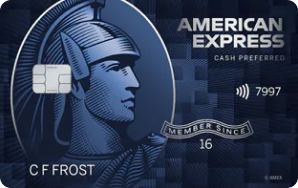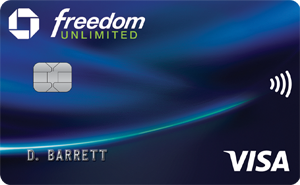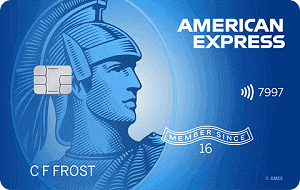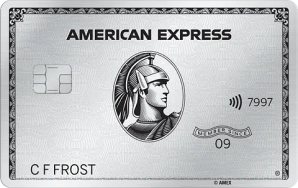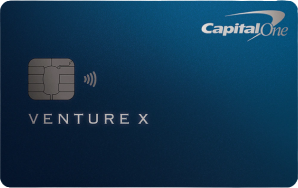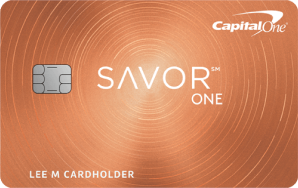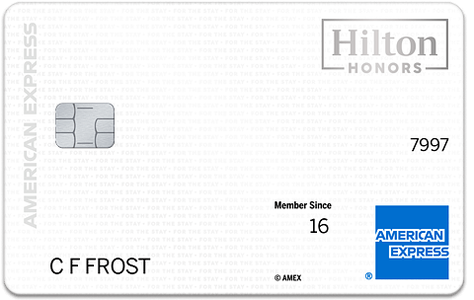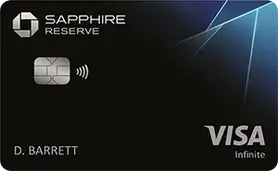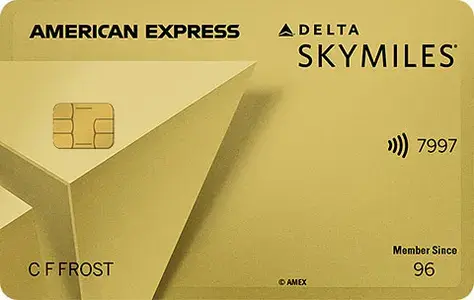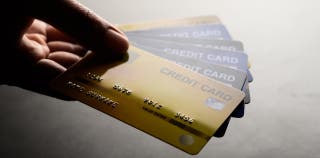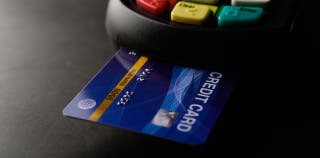- Our top 3 picks for the best rewards credit cards are the Capital One Venture Rewards Credit Card, the Blue Cash Preferred® Card from American Express, and Chase Freedom Unlimited®.
- Choosing a rewards credit card can be overwhelming, but CardMatch can help. Answer a few questions and you’ll get matched with cards that meet your needs. Using CardMatch will not affect your credit score.
- Rewards cards offer generous points, cash-back, or miles-earning ability on your purchases. Many also come with added benefits such as sign-up bonuses, travel statement credits, and consumer protections.
On This Page
- Key takeaways
- Our top picks for the best rewards credit cards
- Let's compare the best rewards credit cards of 2024
- Best rewards credit cards of 2024: Editorial reviews
- What is a rewards credit card?
- Types of rewards credit cards
- Pros and cons of rewards credit cards
- Reasons to get a rewards credit card
- Reasons to not get a rewards credit card
- How to choose a rewards credit card
- Making the most of your credit card rewards
- How we selected our top rewards cards
- Best rewards credit cards FAQ
- Recommended articles
On This Page
- Key takeaways
- Our top picks for the best rewards credit cards
- Let's compare the best rewards credit cards of 2024
- Best rewards credit cards of 2024: Editorial reviews
- What is a rewards credit card?
- Types of rewards credit cards
- Pros and cons of rewards credit cards
- Reasons to get a rewards credit card
- Reasons to not get a rewards credit card
- How to choose a rewards credit card
- Making the most of your credit card rewards
- How we selected our top rewards cards
- Best rewards credit cards FAQ
- Recommended articles
Best Rewards Credit Cards of 2024
Our top picks for the best rewards credit cards
- Capital One Venture Rewards Credit Card: Best for Flat-rate Travel Rewards
- Blue Cash Preferred® Card from American Express: Best for Grocery & Gas Rewards
- Chase Freedom Unlimited®: Best for Flexible Cash Back Rewards
- Blue Cash Everyday® Card from American Express: Best for Rewards on Everyday Spending
- The Platinum Card® from American Express: Best for Premium Amex Travel Rewards
- Capital One Venture X Rewards Credit Card: Best Premium Capital One Travel Rewards
- Capital One SavorOne Cash Rewards Credit Card: Best for Dining and Entertainment Rewards
- Chase Sapphire Preferred® Card: Best for Flexible Travel Rewards
- Hilton Honors American Express Card: Best for Hilton Rewards
- Chase Sapphire Reserve® : Best for Premium Chase Travel Rewards
- Wells Fargo Active Cash® Card: Best for Flat-Rate Cash Back
- Delta SkyMiles® Gold American Express Card: Best for Delta Airlines Rewards
Our top picks for the best rewards credit cards
Best for Flat-rate Travel Rewards
Capital One Venture Rewards Credit Card
Earn 5X miles per dollar on hotel stays or rental cars booked through Capital One’s portal and 2X miles on all other purchases.
Card Details
More Card Info
- Miles won’t expire for the life of the account and there’s no limit to how many you can earn
- Receive up to a $100 credit for Global Entry or TSA PreCheck®
- Use your miles to get reimbursed for any travel purchase—or redeem by booking a trip through Capital One Travel
- Enrich every hotel stay from the Lifestyle Collection with a suite of cardholder benefits, like a $50 experience credit, room upgrades, and more
- Transfer your miles to your choice of 15+ travel loyalty programs
Pros
- Travel insurance protections incuded
- Earn flexible rewards for travel
- Reasonable $95 annual fee
Cons
- Requires good or excellent credit
- No everyday spending bonus categories
- High APR
The massive sign-up offer and generous, flexible rewards make this card a great option for casual travelers.
Best for Grocery & Gas Rewards
Blue Cash Preferred® Card from American Express
Earn 6% back on up to $6,000 spent at U.S. supermarkets each year (then 1% back), 6% back on select U.S. streaming services, 3% back at U.S. gas stations and on transit, and 1% back on other purchases.
Card Details
More Card Info
- 0% Intro APR for purchases and balance transfers during the first 12 months (then 19.24% to 29.99% variable)
- Cash Back is received in the form of Reward Dollars that can be redeemed as a statement credit or at Amazon.com checkout.
- Get up to $120 in statement credits annually when you pay for an auto-renewing subscription to Equinox+ at equinoxplus.com with your Blue Cash Preferred® Card. That’s $10 in statement credits each month. Enrollment required.
- Thinking about getting the Disney Bundle which can include Disney+, Hulu, and ESPN+? Your decision made easy with $7/month back in the form of a statement credit after you spend $9.99 or more each month on an eligible subscription (subject to auto renewal) with your Blue Cash Preferred® Card. Enrollment required.
- Terms Apply.
Pros
- Excellent rewards on spending at U.S. supermarkets, U.S. gas stations, transit and more
- 0% APR on purchases for a limited time
- Don’t need to activate categories
Cons
- Rewards can only be redeemed for a statement credit or at Amazon.com
- Charges foreign transaction fees
- Has an annual fee
Although this card has an annual fee, most families will be able to easily get enough value out of the everyday categories to make it worth it.
Best for Flexible Cash Back Rewards
Chase Freedom Unlimited®
Enjoy 6.5% cash back on travel purchased through Chase Travel℠, 4.5% cash back on drugstore purchases and dining at restaurants, including takeout and eligible delivery services, and 3% on all other purchases (on up to $20,000 spent in the first year). After your first year or $20,000 spent, enjoy 5% cash back on travel purchased through Chase Travel℠, 3% cash back on drugstore purchases and dining at restaurants, including takeout and eligible delivery service, and 1.5% cash back on all other purchases.
Best for Rewards on Everyday Spending
Blue Cash Everyday® Card from American Express
Earn 3% cash back on up to $6,000/year spent at U.S. supermarkets (then 1%), 3% back on up to $6,000/year at U.S. gas stations (then 1%), 3% back on up to $6,000/year on online retail purchases (then 1%), and 1% back on all other eligible purchases.
Card Details
More Card Info
- 0% intro APR on purchases and balance transfers for 15 months after account opening, then 19.24% to 29.99% variable APR.
- Cash Back is received in the form of Reward Dollars that can be redeemed as a statement credit or at Amazon.com checkout.
- Thinking about getting the Disney Bundle which can include Disney+, Hulu, and ESPN+? Your decision made easy with $7/month back in the form of a statement credit after you spend $9.99 or more each month on an eligible subscription (subject to auto renewal) with your Blue Cash Everyday® Card. Enrollment required.
- Enjoy up to $15 back per month when you purchase a Home Chef meal kit subscription (subject to auto renewal) with your enrolled Blue Cash Everyday® Card.
- Terms Apply.
Pros
- No annual fee
- 0% APR on eligible purchases for 15 months
- Generous rewards at U.S. supermarkets, U.S. gas stations & online shopping
Cons
- Rewards cap on spending at U.S. supermarkets, U.S. gas stations, and online retail purchases
- 2.7% foreign transaction fee
- Low rewards rate outside of bonus categories
For a no-annual-fee option, the reward rate on this card is pretty solid, but for heavy spenders, other cards may offer more value.
Best for Premium Amex Travel Rewards
The Platinum Card® from American Express
Earn 5X Membership Rewards® points for flights booked directly with airlines or with American Express Travel (on up to $500,000 per calendar year), 5X points on prepaid hotels booked with American Express Travel, and 1X points on other purchases.
Card Details
More Card Info
- $200 Hotel Credit: Get up to $200 back in statement credits each year on prepaid Fine Hotels + Resorts® or The Hotel Collection bookings with American Express Travel when you pay with your Platinum Card®. The Hotel Collection requires a minimum two-night stay.
- $240 Digital Entertainment Credit: Get up to $20 back in statement credits each month on eligible purchases made with your Platinum Card® on one or more of the following: Disney+, a Disney Bundle, ESPN+, Hulu, The New York Times, Peacock, and The Wall Street Journal. Enrollment required.
- $155 Walmart+ Credit: Cover the cost of a $12.95 monthly Walmart+ membership (subject to auto-renewal) with a statement credit after you pay for Walmart+ each month with your Platinum Card®. Cost includes $12.95 plus applicable local sales tax. Plus Up Benefits are excluded.
- $200 Airline Fee Credit: Select one qualifying airline and then receive up to $200 in statement credits per calendar year when incidental fees are charged by the airline to your Platinum Card®.
- $200 Uber Cash: Enjoy Uber VIP status and up to $200 in Uber savings on rides or eats orders in the US annually. Uber Cash and Uber VIP status is available to Basic Card Member only. Terms Apply.
- $300 Equinox Credit: Get up to $300 back in statement credits per calendar year on an Equinox membership, or an Equinox club membership (subject to auto-renewal) when you pay with your Platinum Card®. Enrollment required. Visit https://platinum.equinox.com/ to enroll.
- $189 CLEAR® Plus Credit: Breeze through security with CLEAR Plus at 100+ airports, stadiums, and entertainment venues nationwide and get up to $189 back per calendar year on your Membership (subject to auto-renewal) when you use your Platinum Card®. Learn more.
- $100 Global Entry Credit: Receive either a $100 statement credit every 4 years for a Global Entry application fee or a statement credit up to $85 every 4.5 years for a TSA PreCheck® (through a TSA official enrollment provider) application fee, when charged to your Platinum Card®. Card Members approved for Global Entry will also receive access to TSA PreCheck at no additional cost.
- Shop Saks with Platinum: Get up to $100 in statement credits annually for purchases in Saks Fifth Avenue stores or at saks.com on your Platinum Card®. That’s up to $50 in statement credits semi-annually. Enrollment required.
- $300 SoulCycle At-Home Bike Credit: Get a $300 statement credit for the purchase of a SoulCycle at-home bike with your Platinum Card®. An Equinox+ subscription is required to purchase a SoulCycle at-home bike and access SoulCycle content. Must charge full price of bike in one transaction. Shipping available in the contiguous U.S. only. Enrollment Required.
- Unlock access to exclusive reservations and special dining experiences with Global Dining Access by Resy when you add your Platinum Card® to your Resy profile.
- Terms Apply.
Pros
- Excellent rewards rate for travel purchases
- Qualify for $1,500+ in statement credits
- Very generous welcome offer
Cons
- High annual fee of $695
- Many statement credit offers are too specific and hard to use
- Non-travel-perks aren’t spectacular
This is quite a spectacular card with incredibly valuable benefits, but the annual fee is objectively very high.
Best Premium Capital One Travel Rewards
Capital One Venture X Rewards Credit Card
Earn 10X miles on hotel and rental car purchases made through Capital One Travel, 5X miles on airfare purchased through the portal, and 2X miles per dollar spent on all other purchases.
Card Details
More Card Info
- Receive a $300 annual credit for bookings through Capital One Travel, where you’ll get Capital One’s best prices on thousands of trip options
- Get 10,000 bonus miles (equal to $100 towards travel) every year, starting on your first anniversary
- Unlimited complimentary access for you and two guests to 1,300+ lounges, including Capital One Lounges and the Partner Lounge Network
- Use your Venture X miles to easily cover travel expenses, including flights, hotels, rental cars and more—you can even transfer your miles to your choice of 15+ travel loyalty programs
- Elevate every hotel stay from the Premier or Lifestyle Collections with a suite of cardholder benefits, like an experience credit, room upgrades, and more
- Receive up to a $100 credit for Global Entry or TSA PreCheck®
Pros
- Miles can be redeemed for travel purchases, transfers to international airlines, and more
- Can qualify for hundreds of dollars in credits each year
- Huge welcome offer
Cons
- $395 annual fee
- Large spending requirement to earn the welcome bonus
- Excellent credit required
With a lower annual fee than some premium cards and extremely valuable benefits, this card can easily be worth the annual fee for the frequent traveler.
Best for Dining and Entertainment Rewards
Capital One SavorOne Cash Rewards Credit Card
Earn 3% cash back on dining purchases, entertainment, and popular streaming services. Earn 3% cash back at grocery stores, and earn 1% cash back on all other purchases.
Card Details
More Card Info
- 0% intro APR on purchases and balance transfers for 15 months (then 19.99% - 29.99% variable APR).
- Balance transfer fee of 3% for the first 15 months; 4% at a promotional APR that Capital One may offer you at any other time
- No rotating categories or sign-ups needed to earn cash rewards; plus, cash back won’t expire for the life of the account and there’s no limit to how much you can earn
- No foreign transaction fees
Pros
- No rotating categories that you need to sign up for
- No spending cap
- No annual fee
Cons
- High APR
- Good or excellent credit recommended
- Low sign-up bonus
The cash-back categories and welcome bonus are pretty solid, especially for a card without an annual fee.
Best for Flexible Travel Rewards
Chase Sapphire Preferred® Card
Earn 5X points on travel booked through Chase, 3X points on dining, online grocery purchases, and select streaming services, and 1X points on other purchases.
Best for Hilton Rewards
Hilton Honors American Express Card
Earn 7X Hilton Honors Bonus Points per dollar spent on eligible Hilton purchases, 5X points per dollar on eligible U.S. restaurant, U.S. supermarket, and U.S. gas station purchases, and 3X on all other purchases.
Card Details
More Card Info
- Enjoy complimentary Hilton Honors™ Silver status with your Card. Plus, spend $20,000 on eligible purchases on your Card in a calendar year and you can earn an upgrade to Hilton Honors™ Gold status through the end of the next calendar year.
- No Foreign Transaction Fees.
- Terms Apply.
Pros
- No annual fee
- Automatic Hilton Silver status
- 20% bonus points on eligible stays
Cons
- Low point redemption value
- Need good or excellent credit to qualify
- Fewer perks than some travel cards
If you’re opposed to paying an annual fee for a hotel card, this one offers decent rewards for no yearly charge. It’s pretty lackluster on other benefits, though.
Best for Premium Chase Travel Rewards
Chase Sapphire Reserve®
Earn 10X points on hotels and car rentals through the Chase portal, 10X points on Chase Dining purchases, 5X points on flights booked through Chase, 3X points on travel and dining, and 1X points on all non-bonus spending.
Best for Flat-Rate Cash Back
Wells Fargo Active Cash® Card
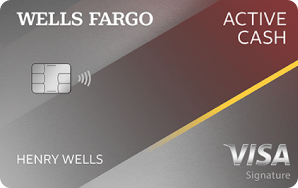
Earn unlimited 2% cash back on all purchases
Card Details
More Card Info
- 0% intro APR on purchases and balance transfers for 15 months from account opening, then a variable APR of 20.24%, 25.24%, or 29.99%.
- No categories to track, activate, or remember
- Cash rewards don’t expire as long as your account remains open
- Find tickets to top sports and entertainment events, book travel, make dinner reservations and more with your complimentary 24/7 Visa Signature® Concierge.
- Up to $600 of cell phone protection against damage or theft. Subject to a $25 deductible.
Pros
- Unlimited 2% back on all purchases
- Intro APR offer
- No annual fee
Cons
- No bonus categories
- Smaller welcome offer than some cards
- Charges 3% in foreign transaction fees
The lack of an annual fee coupled with high flat-rate rewards makes this card a valuable asset to any wallet.
Best for Delta Airlines Rewards
Delta SkyMiles® Gold American Express Card
Earn 2X miles on restaurant purchases (plus takeout and delivery in the U.S.), 2X miles at U.S. supermarkets and on Delta purchases, and 1X miles on all other purchases.
Card Details
More Card Info
- Delta SkyMiles® Gold American Express Card Members get 15% off when using miles to book Award Travel on Delta flights through delta.com and the Fly Delta app. Discount not applicable to partner-operated flights or to taxes and fees.
- $200 Delta Flight Credit: After you spend $10,000 in purchases in a year, you can receive a $200 Delta Flight Credit to use toward future travel.
- You can check your first bag free on Delta flights, saving up to $60 on a round-trip Delta flight per person. For a family of four that’s a potential savings of up to $240 per round-trip flight.
- Receive Main Cabin 1 Priority Boarding on Delta flights; board early, stow your carry-on bag and settle in sooner.
- $100 Delta Stays Credit: Delta SkyMiles® Gold American Express Card Members can earn up to $100 back annually on eligible prepaid Delta Stays bookings on delta.com.
- Take up to $50 off the cost of your flight for every 5,000 miles you redeem with Pay with Miles when you book on delta.com.
- Receive a 20% savings in the form of a statement credit on eligible Delta in-flight purchases after using your Card.
- No Foreign Transaction Fees.
- With Send & Split®, you can send money and split your Card purchases with any other Venmo or PayPal user, directly from the Amex App. Enroll today.
- Terms Apply.
Pros
- Ability to earn a Delta Flight Credit
- Generous welcome offer
- Free checked bag
Cons
- Comparatively high annual fee after the first year
- Requires good to excellent credit
- No Sky Club access
The perks this card delivers can easily make up for the annual fee but may not be worth it if you aren’t a Delta enthusiast.
 COMPARE CARDS
COMPARE CARDS
Let's compare the best rewards credit cards of 2024
 GET STARTED
GET STARTED
 Get matched with your perfect credit card in 60 seconds or less, no impact on your credit score.
GET STARTED
Get matched with your perfect credit card in 60 seconds or less, no impact on your credit score.
GET STARTED
Other rewards cards we love:
Airline (learn more in our guide to the best airline credit cards)
United Club℠ Infinite Card
United℠ Explorer Card
Aeroplan® Credit Card
Southwest Rapid Rewards® Priority Credit Card
Delta SkyMiles® Platinum American Express Card
Hotel (learn more in our guide to the best hotel credit cards)
Marriott Bonvoy Brilliant® American Express® Card
Hilton Honors American Express Surpass® Card
IHG® Rewards Premier Credit Card
Cash-back (learn more in our guide to the best cash-back credit cards)
Capital One Quicksilver Cash Rewards Credit Card
Business (learn more in our guide to the best business credit cards)
American Express® Business Gold Card
The Business Platinum Card® from American Express
Capital One Spark Miles for Business
Capital One Spark Cash Plus
Ink Business Unlimited® Credit Card
Ink Business Preferred® Credit Card
Travel (learn more in our guide to the best travel credit cards)
American Express® Gold Card
Capital One VentureOne Rewards Credit Card
What is a rewards credit card?
A rewards credit card lets you earn rewards for each dollar you spend.
Some rewards cards offer a flat rate of points, miles, or cash back on everything you buy, whereas others offer more points in specific categories people shop in. In some cases, bonus rewards can be capped based on a specific amount of spending each calendar year or in certain billing cycles. In other cases, the rewards you can earn are unlimited.
Many cards in this niche also offer extra perks like consumer protections, travel insurance benefits, statement credits, and third-party memberships. The best rewards credit cards of 2024 may also offer generous welcome bonuses, an opportunity for new cardholders to earn extra rewards after spending a certain amount in a set period.
How do rewards credit cards work?
Rewards cards work similarly to other credit cards. They offer a line of credit you can borrow against, and you can choose to carry a balance month-to-month. However, if you don’t pay your credit card balance in full before your due date, you’ll be charged your credit card’s interest rate on revolving balances.
After making an eligible purchase on a credit card with rewards, you’ll receive a portion of that purchase back in the form of cash back, points, or miles. These rewards will likely be redeemable through your account on the credit card issuer’s website or mobile app.
For example, let’s say you make a $200 purchase on an eligible hotel stay using the Capital One Venture Rewards Credit Card. You’ll receive 1,000 miles (worth approximately $14) as a reward.
Types of rewards credit cards
There are several types of reward cards to be aware of, which include the following:
Cash-back credit cards
These cards let consumers earn a specific percentage of cash back on their spending, often between 1% and 6%. Some offer a flat rate on all purchases and others have bonus categories, such as dining or grocery purchases. Usually, the rewards on these cards are given to you in the form of a statement credit.
Our pick: Blue Cash Preferred® Card from American Express
Flexible rewards credit cards
On a flexible reward card, you can earn points that can be redeemed in multiple ways, including gift cards, travel, merchandise, and more. A flexible rewards card is often the best credit card for points.
Our pick: Chase Sapphire Preferred® Card (See our detailed comparison of Chase Sapphire Preferred vs. Capital One Venture).
Travel credit cards
Premium, flexible travel cards offer various rewards redemption options, including the chance to transfer points to airline and hotel partners. These cards often offer rewards on everyday purchases, as well as eligible travel purchases. They typically aren’t affiliated with a specific brand, giving you flexibility when earning or redeeming points.
Our pick: Capital One Venture X Rewards Credit Card
Airline credit cards
Cobranded airline cards let users earn airline miles and enjoy frequent flyer perks with programs like Southwest, United, or Delta. Some of these cards offer top-of-the-line perks like airport lounge access, in-flight discounts, companion tickets, and more.
Our pick: Delta SkyMiles® Gold American Express Card
Hotel-specific rewards cards
Co-branded hotel cards let users earn points in specific hotel loyalty programs, such as Wyndham Rewards or the Marriott Bonvoy program. Some cards offer perks like elite status, annual night rewards, travel insurance, and more.
Our pick: Hilton Honors American Express Credit Card
Business rewards credit cards
Business rewards cards work similarly to other rewards cards, allowing you to earn points, miles, or cash back on purchases. Many of these cards have business-specific reward categories, others offer flat-rate cash back, and others offer travel rewards. They can help build business credit and keep your business and personal expenses separate.
Our pick: The Business Platinum Card® from American Express
The vast majority of rewards credit cards let you earn unlimited rewards, although some cap bonus category rewards each calendar year (or each quarter). Before you earn credit card rewards, make sure you understand the type of card you signed up for and how its rewards program works.
Pros and cons of rewards credit cards
- Numerous rewards cards have no annual fee.
- Rewards credit cards are available for all levels of credit history.
- Many cards come with high-value points or miles.
- Reward cards can come with initial bonuses.
- High regular APRs are common.
- Some reward programs have minimum redemption amounts.
- Rewards can often expire.
Reasons to get a rewards credit card
Should you get a rewards card? That depends, but if the following statements sound like you, you may want to consider it:
- Building up a stash of points you can spend sounds appealing to you.
- You spend quite a bit on groceries, gas, dining, travel, or entertainment each month
- Travel is important to you, and you want a way to make it more affordable
- You have a large purchase coming up and you want to earn a large welcome bonus in return
- You’re responsible with your finances and manage your credit well.
These are just some of the reasons to pick up a rewards credit card, but there are plenty of others. Most people can benefit from a rewards credit card, as even 1% back on purchases can add up quickly.
Unlock valuable strategies to maximize your cash back or points, and explore the seamless process of directing these rewards into an account like a Marcus Savings Account or Synchrony Savings Account for amplified savings.
Reasons to not get a rewards credit card
Although most people can benefit from a rewards credit card, they aren’t right for everyone.
- If the possibility of earning rewards will make you more susceptible to overspending, it may not be the smartest financial decision.
- If you have bad credit or are just starting on your credit journey, you may not qualify for a top rewards credit card yet.
Earning credit card rewards: What to watch out for
Here are some of the potential problems to be aware of before you pick up a new rewards card:
- Transaction fees: Watch out for transaction fees such as foreign purchase fees, balance transfer fees, and cash advance fees.
- Overspending: The potential for rewards causes many consumers to spend more than they planned, especially when it comes to earning a sign-up offer in a short amount of time.
- Complicated rewards programs: Some programs make you jump through a lot of hoops before you can use your points or miles.
- High APRs: Most rewards cards charge a high regular APR when you carry a balance month-to-month.
- Pricey benefits you can’t use: Although many rewards cards offer valuable benefits, they aren’t worth it if you can’t utilize them. Some rewards cards have high annual fees, so make sure you can get your money’s worth before committing.
How to choose a rewards credit card
Choosing a rewards card can be tricky, but there are plenty of factors that can help narrow down your choices.
Here are the main rewards card factors you should think about before you decide:
Decide on the type of rewards you want to earn.
Whether you want to earn cash back or flexible points like Chase Ultimate Rewards, you need to decide on this factor ahead of time. After all, the type of rewards you want the most can help you narrow down card options considerably.
Look for earning rates that align with your spending.
Also look for credit cards that offer bonus categories that make sense with your spending, whether you spend a lot at U.S. supermarkets or you splurge on travel purchases. Finally, look for cards that offer a generous earning rate on other purchases you make with your card.
Decide if you want 0% APR.
If you want a rewards card that offers zero interest on purchases, balance transfers, or both for a limited time, this factor can also help you narrow down your choices.
Determine whether you want travel perks.
If you spend a lot on travel purchases or traverse the globe fairly often, look for cards that offer airport lounge access, travel statement credits, and affordable travel insurance.
Look at cards with consumer protections.
If consumer protections are important to you, look for cards that offer purchase protection against damage or theft and extended warranties on items that come with a manufacturer’s warranty.
Compare annual fees and transaction fees.
Finally, make sure you’re only paying an annual fee if you’re getting something in return. Also, watch out for transaction fees that can eat away at your rewards haul.
Making the most of your credit card rewards
After choosing your perfect rewards credit card, it’s time to ensure you maximize those rewards.
- Keep track of bonus categories. Especially if you have multiple credit cards, ensure you’re earning the most value on your expenses by making purchases that maximize those categories.
- Use your card to buy almost everything. Although some people prefer to use debit cards or cash to make purchases, that won’t earn you any rewards. Even 1% back on a $3 purchase earns you something.
- Study the rewards program. Some credit card issuers offer additional value when redeeming rewards in a specific way. For example, 1 Capital One mile is equal to 0.5 cents when redeemed as cash back and can be worth over 1 cent when redeemed with select transfer partners.
- Use the other perks. If your credit card offers statement credits, travel insurance, Global Entry or TSA PreCheck, airport lounge access, etc., use them! These perks can be worth hundreds of dollars and often make up the bulk of a card’s value.
How we selected our top rewards cards
We looked at more than 100 rewards credit cards on the market today to find the best credit cards overall. We compared credit cards with sign-up offers, rewards for all purchases, rewards for travel purchases, rewards earned in bonus categories, and annual fees. We also compared cards based on their benefits, with preference given to cards that offer generous perks for a reasonable annual fee.
 LEARN MORE
LEARN MORE
Best rewards credit cards FAQ
Are cash back credit cards or travel rewards cards better?
The best credit card varies from person to person. However, cash back credit cards are typically best for people who want to earn points they can redeem for statement credits, gift cards, or a check. Meanwhile, travel credit cards are geared to people who want to redeem their points for travel-related redemptions such as airfare, hotel stays, or upgrades.
Can I have more than one rewards card?
You can have more than one rewards credit card provided you have the income and credit score to qualify.
Which credit card has the best rewards program?
The right credit card rewards program depends on your goals. However, we believe flexible programs like Capital One Miles and Chase Ultimate Rewards are best due to their overall flexibility.
Are credit card rewards taxable?
Credit card rewards are considered a rebate on your spending, so they’re not counted as taxable income.
Are store rewards cards good?
Store rewards cards can be “good” since they let you earn points and score special discounts. However, store cards can be limiting since you can only use them in specific stores or families of stores. By contrast, credit cards from networks like Visa and Mastercard can be used at millions of retailers, restaurants, and vendors around the world.
Will I qualify for a rewards credit card?
Most rewards credit cards require good or excellent credit to qualify, but there are options for those with poor credit, no credit history, and students. The perks may not be as spectacular as other rewards cards, but they still offer you something, especially while you are building or rebuilding your credit.
Do they make rewards cards for business use?
Yes! Capital One Spark Miles for Business is our pick for travel rewards and the American Express® Business Gold Card has 4x rewards on the first $150,000 spent! You can read more about these cards and the other business cards we recommend on the Best Business Credit Cards page.
* Opinions expressed here are those of the LA Times Compare Cards Team and have not been reviewed or approved by any advertiser or entities included within this content. See our editorial policy for more details.
All products or services are presented in this content without warranty. The information, including card details such as rates and fees, is accurate at the time of publish. Please visit each bank's website directly for the most current information.



